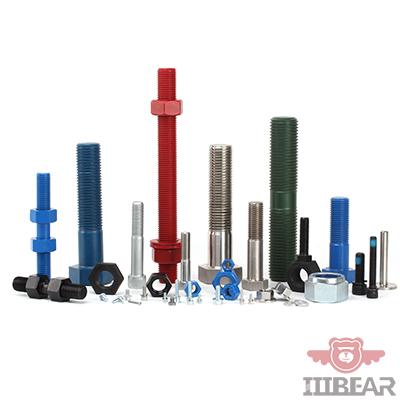Water treatment facilities operate in highly corrosive environments that demand specialized fasteners. Selecting the appropriate stainless steel bolts is crucial to ensure long-term structural integrity, safety, and cost efficiency. This guide outlines key considerations, materials, and standards to help procurement managers and engineers make informed decisions.

Why Corrosion Resistance Matters in Water Treatment Fasteners
Water treatment systems expose fasteners to chlorinated water, high humidity, and chemicals that accelerate corrosion. Failure of bolts can lead to leaks, structural breakdowns, or even system shutdowns. Choosing corrosion-resistant stainless steel bolts reduces maintenance costs and extends equipment lifespan.
Key Stainless Steel Grades for Water Treatment Bolts
Different stainless steel grades offer varying levels of corrosion resistance, mechanical strength, and cost. The table below compares commonly used grades in water treatment applications:
| Stainless Steel Grade | Composition Highlights | Corrosion Resistance | Typical Applications |
|---|---|---|---|
| 304 | 18% Cr, 8% Ni | Moderate | Piping, general fixtures |
| 316 | 16% Cr, 10% Ni, 2% Mo | High (chlorides) | Tanks, filters, pumps |
| 2205 Duplex | 22% Cr, 5% Ni, 3% Mo | Very High | High-pressure pipes, structures |
| 904L | 20% Cr, 25% Ni, 4.5% Mo | Extreme | Aggressive chemical zones |
Table 1. Comparison of stainless steel grades for water treatment bolts
Factors to Consider When Selecting Bolts
1. Exposure Environment
-
Freshwater vs. Seawater
Seawater applications require higher molybdenum content (e.g., 316 or Duplex 2205). -
Chemical Treatment Zones
Areas exposed to chlorides or sulfuric acid demand superior grades like 904L.
2. Mechanical Strength Requirements
For high-load-bearing equipment such as clarifiers or pressure vessels, Duplex 2205 bolts offer double the strength of 316 while resisting corrosion.
3. Compliance with Industry Standards
Procurement managers should ensure fasteners meet recognized standards for water treatment infrastructure:
| Standard | Description | Applicability |
|---|---|---|
| ASTM A193 | Alloy-Steel and Stainless Steel Bolting for High-Temperature or High-Pressure Service | Pressure vessels, flanges |
| ASTM F593 | Stainless Steel Bolts, Hex Cap Screws, and Studs | General structural |
| ISO 3506 | Mechanical properties of corrosion-resistant stainless steel fasteners | Global compliance |
Table 2. Key fastener standards relevant to water treatment projects
Surface Treatments and Coatings to Enhance Performance
Beyond material grade, coatings can further enhance corrosion resistance:
| Coating Type | Benefit | Best Use Case |
|---|---|---|
| PTFE Coating | Chemical resistance + lubrication | Bolts in dosing pumps |
| Passivation | Removes contaminants, enhances Cr oxide layer | All stainless bolts |
| Zinc-Nickel Coating | Extra barrier protection | Bolts near aeration tanks |
Installation Best Practices (Process Flow)
To maximize bolt performance and lifespan, adhere to the following installation flow:
Conclusion
Choosing the right stainless steel bolts for water treatment equipment requires careful consideration of material grade, environmental exposure, mechanical requirements, and compliance standards. By selecting appropriate fasteners and following best practices, procurement managers can ensure durable, cost-effective solutions for their projects.
Contact us today to discuss customized fastener solutions for your water treatment project.

